Top 7 Join Brands Alternatives to Try Out This Year
After a five-year stint in corporate marketing in California, Lucas decided to hang up the suit and tie for a more relaxed setting. He moved to Barcelona to get his MBA and enjoy the Mediterranean lifestyle. After spending 15 months in Europe, Lucas moved back home to Reno, Nevada where he started his own digital marketing company, StratMark. When he is not working, Lucas is out skiing, rock climbing, mountain biking, and just enjoying the outdoors.
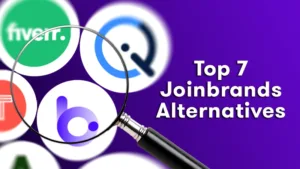
Influencer marketing and user-generated content (UGC) are key strategies for brands aiming to boost their reach and engagement. Joinbrands is a well-known provider in this space, but there are other platforms worth considering.
In this article, we explore the top alternatives to Joinbrands, outlining their features, pros, and cons depending on your needs.
1. Billo
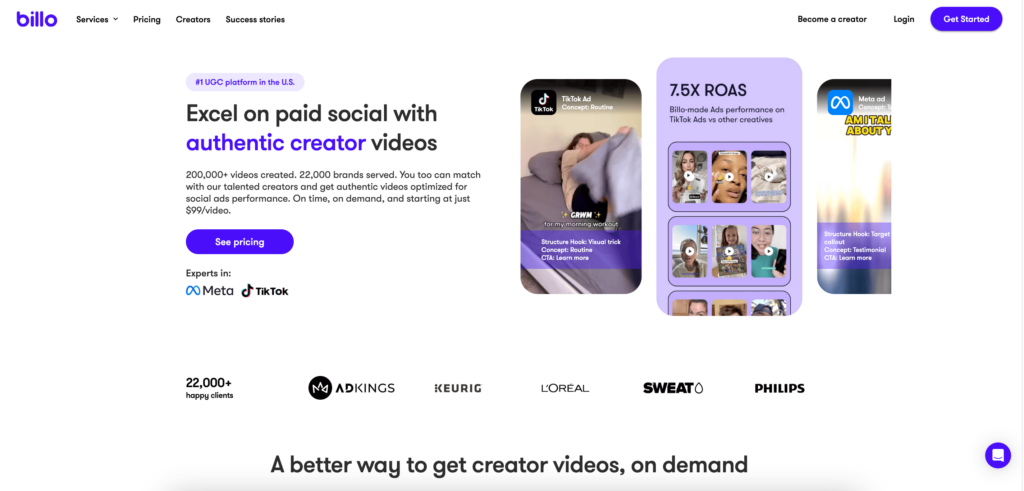
Billo’s main value proposition is providing brands with authentic, performance-oriented video content. The platform connects brands with creators to produce authentic video content optimized for social media advertising, particularly on platforms like TikTok and Meta (Facebook & Instagram).
Billo has produced over 200,000 videos for more than 22,000 brands and as a network of 5,000+ vetted creators across various demographics, styles, and niches. Check out our case studies here.
Videos start at $99, with no hidden fees. The video ordering process is streamlined to four steps: defining the brand’s needs, creating a brief, matching with creators, and receiving the videos.
Key Features:
- Tailored Video Content: Custom videos created by content creators.
- Streamlined Process: Simplified navigation through content creation.
- Quality Assurance: Vetted creators ensure consistent quality.
| Pros | Cons |
| Custom video content tailored to brand needs | Focused primarily on video content |
| Streamlined workflow and high-quality output | Limited range of services compared to some competitors |
| Flexible and scalable content creation |
2. Fiverr & Upwork

Fiverr and Upwork are freelance marketplaces offering various services, including content creation and marketing strategy. They provide access to freelancers with diverse skills, making them cost-effective for managing campaigns.
Key Features:
- Versatile Services: Wide range of services from freelancers globally.
- Flexible Engagements: Engage freelancers for one-off or ongoing projects.
| Pros | Cons |
| Versatile and accessible | Variable quality of work |
| Flexible engagement options | Requires active project management |
| Cost-effective |
3. CreatorIQ
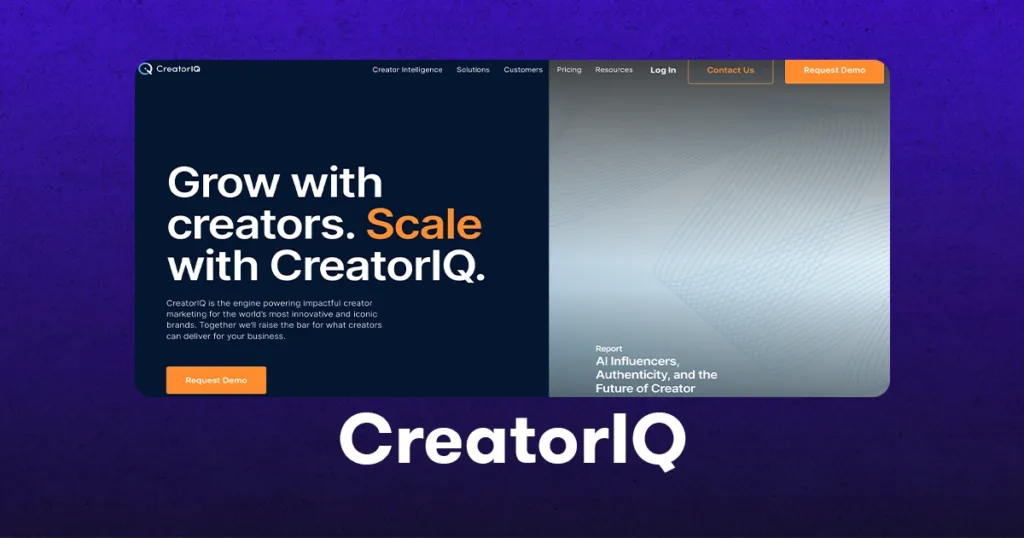
CreatorIQ is designed for enterprise-level influencer marketing. It offers tools for managing large-scale campaigns and integrates deeply with social media platforms.
Key Features:
- Enterprise-Level Tools: Advanced features for large organizations.
- Social Media Integration: Seamless campaign management.
- Automation and Analytics: Streamlined workflow with robust analytics.
| Pros | Cons |
| Robust, enterprise-level features | High cost, less accessible for smaller brands |
| Enhanced social media integration | Complex setup and management |
4. AspireIQ
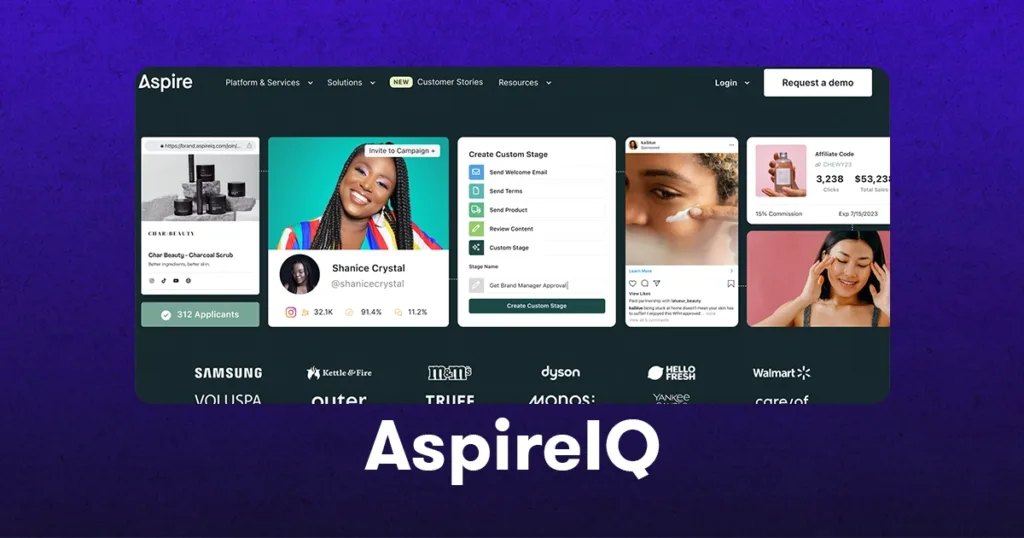
AspireIQ, formerly Revfluence, is known for its advanced analytics and comprehensive campaign management tools. It helps brands identify the right influencers and craft scalable campaigns.
Key Features:
- Advanced Analytics: Detailed insights for optimizing campaigns.
- Scalable Campaigns: Supports large-scale influencer campaigns.
- Influencer Discovery: Helps find and engage relevant creators.
| Pros | Cons |
| Data-driven insights for campaign optimization | May be overly complex for smaller brands |
| Designed for scalable influencer campaigns | Higher-tier services can be expensive |
5. TINT
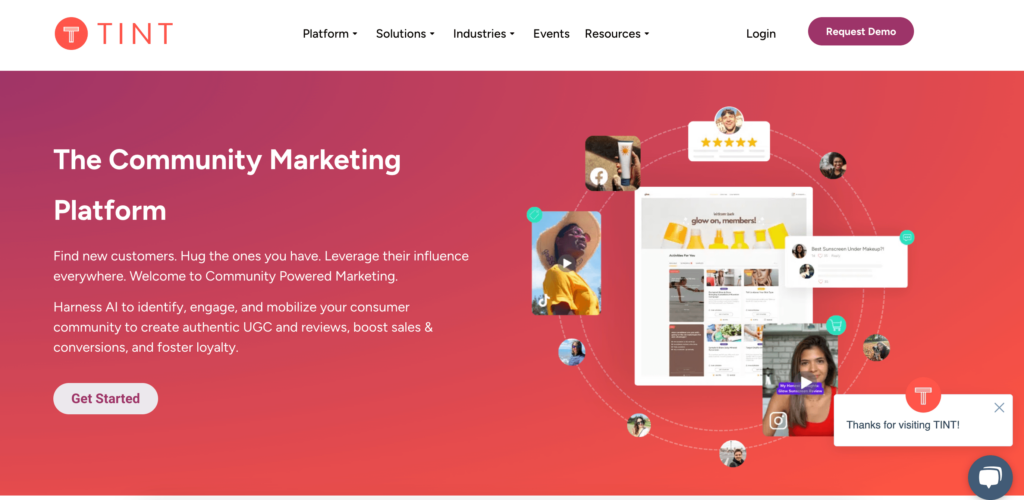
TINT is a user-generated content platform that curates social media content to improve engagement and trust. It integrates user content into marketing campaigns and digital displays.
Key Features:
- Content Aggregation: Gathers social media content for marketing.
- Enhanced Engagement: Increases trust with authentic content.
- Customization: Tailors content display to meet campaign goals.
| Pros | Cons |
| Great for leveraging existing social media content | Relies on existing content |
| Enhances authenticity and consumer engagement | Success depends on user-generated relevant content |
Explore more UGC platforms with the best Collabstr alternatives.
6. Heartbeat
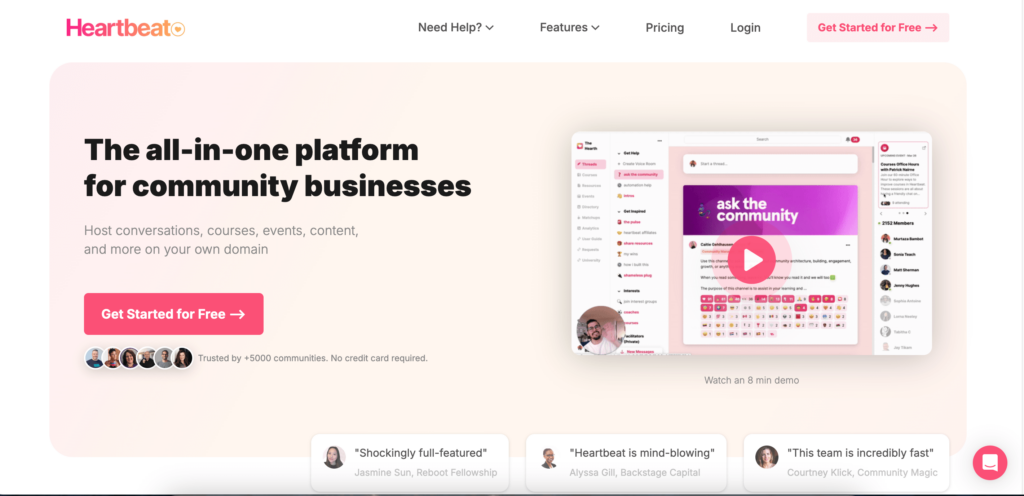
Heartbeat connects brands with micro-influencers, focusing on genuine interactions and content from everyday users. This strategy is effective for reaching a varied audience with authentic content.
Key Features:
- Micro-Influencer Network: Extensive network of micro-influencers.
- Authentic Engagement: Real interactions and relatable content.
- Cost-Effective: Budget-friendly compared to high-profile influencers.
| Pros | Cons |
| Authentic engagement through micro-influencers | Less control over content |
| Cost-effective approach to influencer marketing | Inconsistent content quality |
7. Bazaarvoice
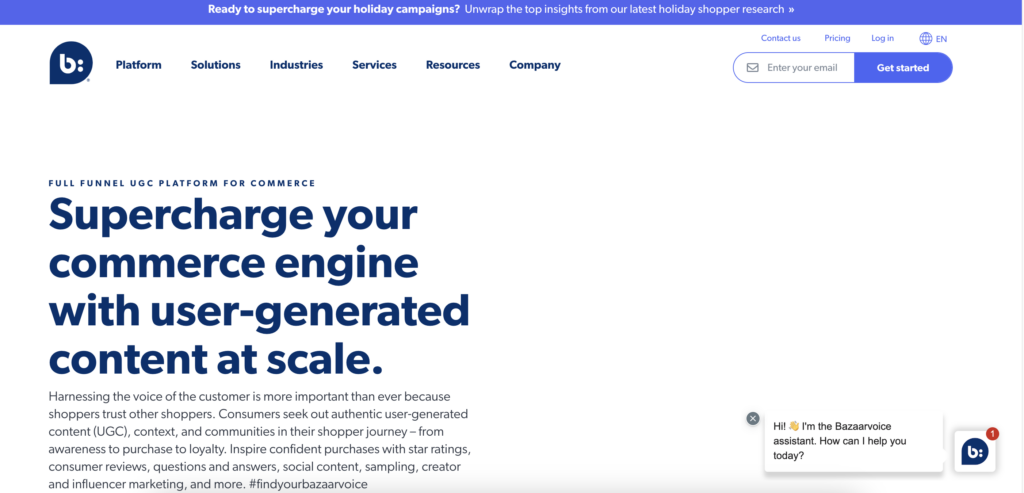
Bazaarvoice gathers, displays, and leverages customer reviews and user-generated content across multiple platforms. It helps brands build trust and community through direct customer feedback.
Key Features:
- UGC Network: Connects brands with a vast network of reviews and content.
- Impactful Analytics: Detailed insights into UGC’s impact on sales and engagement.
- Multi-Platform Integration: Utilizes UGC across various channels.
| Pros | Cons |
| Extensive network of customer reviews and content | Complex integration with existing systems |
| Detailed analytics for tracking UGC impact | Potentially expensive for smaller businesses |
Join Brands Alternatives Summary
The discussed Join Brands alternatives offer diverse features and capabilities, providing a pool of good options for people looking to replace their provider. Depending on your brand’s needs, budget, and goals, these options offer valuable solutions for user-generated content and influencer marketing.
If you are curious about what else is out there, you may want to check out:
Want to begin working with a trusted pool of vetted creators?
After a five-year stint in corporate marketing in California, Lucas decided to hang up the suit and tie for a more relaxed setting. He moved to Barcelona to get his MBA and enjoy the Mediterranean lifestyle. After spending 15 months in Europe, Lucas moved back home to Reno, Nevada where he started his own digital marketing company, StratMark. When he is not working, Lucas is out skiing, rock climbing, mountain biking, and just enjoying the outdoors.

Authentic creator videos, powered by real performance data
22,000+ brands use Billo to turn UGC into high-ROAS video ads.
From Avatars to Authenticity: Navigating the 2025 Wave of AI Generated UGC
That UGC ad you just watched? The person might not [...]...
Read full articleMastering UGC Scripts: Best Practices, Templates & Creator Insight
In 2025, brands are facing the most competitive short-form video [...]...
Read full articleFrom Hashtags to Sales: UGC Campaign Examples That Worked
User-generated content (UGC) campaigns are reshaping how brands build trust and [...]...
Read full article



